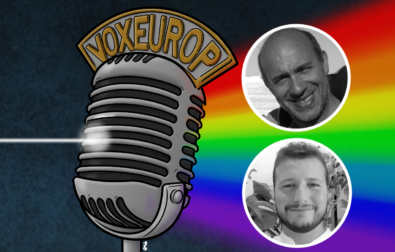When everything goes wrong, we’ve still got football. No other spectacle in the world can stir up as much collective passion, and of such a similar cast, all over the planet. The secret to its mass appeal lies in its ability to express universal emotions in a shared language: the competitive spirit and collective challenge, a sense of belonging and tribal identity. It has the brute physical beauty of sports, the moral spirit of overcoming obstacles and the mental complexity of strategy, though grounded in an act as instinctive and natural as kicking a rolling object.
Associated with popular culture, the entertainment industry and the marketing and advertising business, football has evolved into a metaphor for the modern world and has successively broken down every political prejudice and cultural reproof heaped upon it in the past: alienation, brutality, machismo and the like. Women, politicians and intellectuals have ended up joining the throng of those swept up in its inexorable whirlwind. Football is a democratic, universalist, worldwide phenomenon, an unrivalled emblem of global society.
A glimmer of hope in a desolate wasteland?
And the World Cup is the supreme rite of this new football religion. Its dimension of international competition reflects the identity structure of the national masses, imbuing it with tremendous participatory appeal and potent social dynamism. Even in a community like Spain caught up in constant identity conflicts, the participation of la Roja [the Spanish national team] serves to bridge particularisms and stitch up our frayed national sentiment with the invisible thread of collective pride. The recent winning streak has swept away our habitual historical pessimism in a groundswell of mounting self-esteem. For the first time in many years, the Spanish team is displaying a style of its own, an ability to surpass itself and triumphant determination. It epitomises a country shorn of its complexes, with a new winning spirit for everyone who is not averse to mass euphoria.
Spain is a contender, if not the frontrunner, in the event, but this aspiration in and of itself constitutes a quantum leap forwards. Even our crisis-stricken government is daydreaming about the soothing widespread optimism that a victory on the pitch would bring in train. And this is no trifling matter: in a despondent mood of impoverishment and bankruptcy, in this deteriorating and increasingly defeatist society, football is overturning the prevailing state of mind and, in its seeming triviality, holding out an objective prospect of victory, a glimmer of hope in a desolate wasteland. Who would have thought it’s just a game.
A conversation with investigative reporters Stefano Valentino and Giorgio Michalopoulos, who have dissected the dark underbelly of green finance for Voxeurop and won several awards for their work.
Go to the event >










